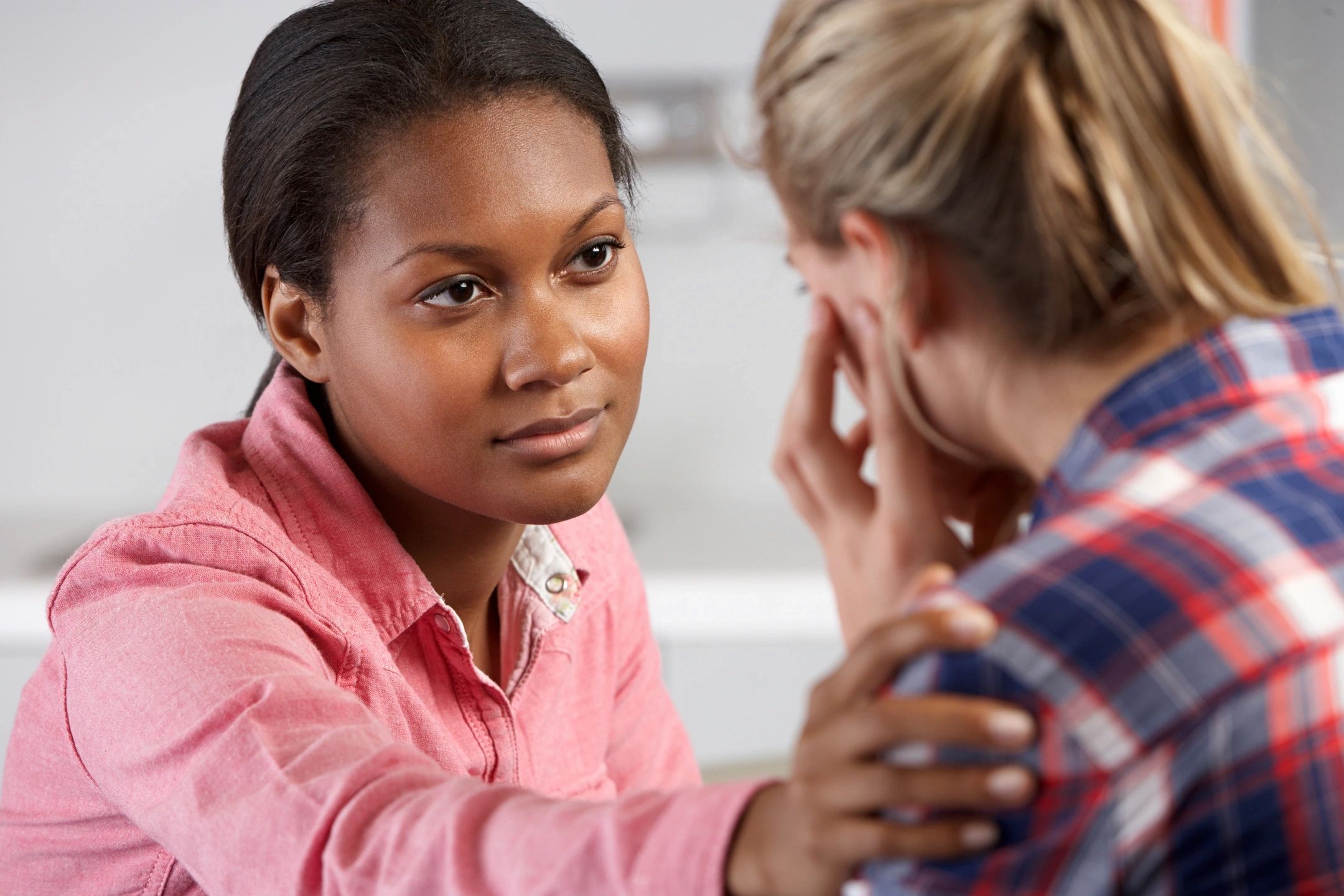Psychosis is a mental health condition that affects an individual’s perception of reality. It is characterized by symptoms such as delusions, hallucinations, and disordered thinking. Psychosis can occur as a result of various underlying conditions, including schizophrenia, bipolar disorder, and severe depression.
The symptoms of psychosis can be distressing and disruptive to an individual’s daily life. Delusions, for example, can cause an individual to believe in things that are not true, such as having special powers or being persecuted by others. Hallucinations can cause an individual to see, hear, or feel things that are not present in reality. Disordered thinking can make it difficult for an individual to communicate effectively with others.
It is important to note that not all individuals who experience psychosis have the same symptoms or underlying conditions. Treatment options for psychosis depend on the underlying cause and may include medications, therapy, and lifestyle changes. Early diagnosis and treatment can help manage symptoms and improve an individual’s quality of life.
Understanding Psychosis
Psychosis is a mental health condition that affects a person’s ability to think, feel, and behave. It is a broad term that encompasses a range of symptoms and conditions, including schizophrenia, delusional disorder, and brief psychotic disorder. Psychosis is characterized by a loss of touch with reality, and people experiencing psychosis may have delusions, hallucinations, or disordered thinking.
Defining Psychosis
Psychosis is a condition that affects the brain, causing a person to experience symptoms such as hallucinations, delusions, and disordered thinking. These symptoms can be severe and can interfere with a person’s ability to function in daily life. Psychosis is not a disease in itself, but rather a symptom of an underlying condition.
Causes of Psychosis
The exact causes of psychosis are not well understood, but researchers believe that a combination of genetic, environmental, and neurological factors may play a role. Substance use, such as cannabis or amphetamines, can also trigger psychotic symptoms in some people. Psychosis can occur in people with bipolar disorder, schizophrenia, major depression, and other mental health conditions. It can also occur after a woman gives birth (postpartum psychosis).
Common Symptoms of Psychosis
The symptoms of psychosis can vary from person to person, but some of the most common symptoms include:
- Delusions: False beliefs that are not based in reality, such as believing that someone is trying to harm you or that you have special powers.
- Hallucinations: Seeing, hearing, or feeling things that are not actually there, such as hearing voices or seeing things that are not real.
- Disordered thinking: Thoughts that are jumbled or incoherent, making it difficult to communicate or make sense of things.
- Negative symptoms: A lack of motivation, emotion, or interest in activities that were once enjoyable.
Early warning signs of psychosis can include changes in mood, unusual thoughts or beliefs, and social withdrawal. It is important to seek help if you or someone you know is experiencing symptoms of psychosis, as early intervention can improve outcomes.
Diagnosis and Treatment
Diagnosing Psychosis
Diagnosing psychosis can be challenging as its symptoms are similar to other mental illnesses. A healthcare professional will typically conduct a thorough evaluation to rule out other conditions before making a diagnosis. The Diagnostic and Statistical Manual of Mental Disorders (DSM-5) provides criteria for diagnosing psychosis, which includes symptoms such as delusions, hallucinations, disorganized thinking, and abnormal behavior.
Here are a few different diagnoses that can have psychosis as a symptom:
- Schizophrenia: A chronic and severe mental disorder characterized by disturbances in thought, perception, and behavior. Symptoms often include hallucinations, delusions, disorganized thinking, and lack of motivation.
- Schizoaffective disorder: A condition characterized by symptoms of both schizophrenia and mood disorders, such as depression or bipolar disorder.
- Schizophreniform disorder: Schizophreniform disorder is a mental health condition that shares similarities with schizophrenia but has a shorter duration.
- Bipolar disorder with psychotic features: In some cases of bipolar disorder, individuals may experience psychotic symptoms during manic or depressive episodes, such as hallucinations or delusions.
- Brief psychotic disorder: A short-term condition where an individual experiences psychotic symptoms, such as hallucinations, delusions, disorganized speech or behavior, for at least one day but less than one month.
- Delusional disorder: A persistent belief in something that is not true despite evidence to the contrary. These beliefs are often non-bizarre and may not significantly impact daily functioning apart from the specific delusional belief.
- Substance-induced psychosis: Psychotic symptoms, such as hallucinations or delusions, that occur as a result of substance abuse or withdrawal from substances such as alcohol, drugs, or medications.
- Psychotic depression: Major depressive disorder with psychotic features, where individuals experience symptoms of depression along with psychotic symptoms such as hallucinations or delusions.
- Postpartum psychosis: This is a severe mental health condition that can occur in women shortly after childbirth and can cause symptoms like delusions, hallucinations, paranoia and confusion.
Treatment Options
Treatment for psychosis typically involves a combination of medication and therapy. Antipsychotic drugs are often used to manage symptoms such as delusions and hallucinations. Olanzapine and risperidone are two commonly prescribed antipsychotic drugs. Psychotherapy, such as cognitive-behavioral therapy, can help individuals manage their symptoms and improve their quality of life.
Medications and Therapy
The medical treatment of psychosis typically involves a multifaceted approach aimed at managing symptoms, addressing underlying causes, and promoting long-term stability and recovery. Antipsychotic medications are often the cornerstone of treatment, helping to alleviate hallucinations, delusions, and disorganized thinking. These medications work by blocking dopamine receptors in the brain, which can help reduce the severity of psychotic symptoms. Additionally, mood stabilizers or antidepressants may be prescribed if there are co-occurring mood disturbances, such as bipolar disorder or depression.
It’s crucial for healthcare providers to tailor medication regimens to each individual’s specific needs, considering factors such as the type and severity of symptoms, potential side effects, and overall health status. Alongside medication, psychotherapy, including cognitive-behavioral therapy (CBT) or family therapy, can be valuable in helping individuals understand their symptoms, develop coping strategies, and strengthen social support networks. Psychiatric rehabilitation programs may also offer support with daily living skills, vocational training, and community integration.
Regular monitoring and collaboration between healthcare professionals, patients, and their support networks are essential to ensure that treatment remains effective and that individuals experiencing psychosis can achieve stability and improved quality of life.
Antipsychotic drugs work by blocking dopamine receptors in the brain. They can help reduce symptoms such as delusions and hallucinations. However, they may also cause side effects such as weight gain, drowsiness, and tremors. Psychotherapy can help individuals learn coping skills and manage their symptoms. Coordinated specialty care and early treatment interventions have also been shown to be effective in managing psychosis.
Diagnosing and treating psychosis requires a comprehensive evaluation and individualized approach. Medication and therapy can help manage symptoms and improve quality of life. It is important for individuals experiencing symptoms of psychosis to seek professional help as early as possible.
Living with Psychosis
Living with psychosis can be challenging, but with the right support and resources, individuals can lead fulfilling lives. It is important to note that each person’s experience with psychosis is unique, and what works for one person may not work for another.
Managing Daily Life
Individuals with psychosis may struggle with managing their daily life due to symptoms such as disorganized thinking and lack of motivation. However, establishing a routine and setting achievable goals can help improve functioning and overall quality of life. It is also important to prioritize self-care, such as maintaining personal hygiene and getting enough rest.
Support Systems
Having a strong support system is crucial for individuals with psychosis. This can include family, friends, mental health professionals, and support groups. Family support and education can also play a significant role in helping individuals with psychosis manage their symptoms and improve their quality of life.
Recovery and Rehabilitation
Recovery from psychosis is possible, and there are many resources available to help individuals achieve their goals. Rehabilitation programs can assist with job performance and education, as well as coping skills and self-care. Motivation is key to recovery, and individuals should be encouraged to set achievable goals and celebrate their successes. It is important to note that recovery is a journey, and setbacks may occur, but with perseverance and support, individuals can continue to make progress.
Psychosis in Context
Psychosis is a severe mental illness that affects a person’s ability to think clearly, make rational decisions, and distinguish between what is real and what is not. It is a symptom of several mental health conditions, including schizophrenia, schizoaffective disorder, and bipolar disorder. Psychosis can also occur as a result of substance use, alcohol, drugs, infection, HIV, brain tumor, dementia, stroke, and epilepsy.
Psychosis in Different Populations
Young people are at a higher risk of developing psychosis and schizophrenia, with symptoms usually appearing in late adolescence or early adulthood. The risk is increased in individuals who have a family history of mental illness or who have experienced trauma or stress. Substance use, such as marijuana, can also increase the risk of developing psychosis.
In the United States, the National Alliance on Mental Illness (NAMI) reports that approximately 100,000 young people experience psychosis each year. It is estimated that one in every 100 people will experience at least one episode of psychosis in their lifetime.
Research and Future Directions
Research on the causes and treatment of psychosis is ongoing. Genetic factors are believed to play a role in the development of psychosis, and researchers are working to identify specific genes that may be involved. Other areas of research include the role of the brain’s dopamine system and the impact of stress on the development of psychosis.
The treatment of psychosis typically involves a combination of medication and therapy and will depend on the underlying causes and diagnoses. Antipsychotic medications are used to relieve symptoms, while therapy can help individuals learn coping skills and improve their ability to function in daily life. It is important to seek treatment as soon as possible, as early intervention can improve outcomes.
In conclusion, psychosis is a serious mental health condition that can affect individuals of all ages and backgrounds. While the causes and treatment of psychosis are still being researched, early intervention and treatment can improve outcomes for those affected.
The information provided on NowPsych is for general informational purposes only. All content, including text, graphics, images, and information, contained on or available through this blog is for general information purposes only.
The information provided in our blogs is not intended to be a substitute for professional medical advice, diagnosis, or treatment. Never start, change or stop any medications, disregard professional medical advice or delay in seeking it because of something you have read on this blog.
NowPsych does not recommend or endorse any specific tests, physicians, products, procedures, opinions, or other information that may be mentioned on this blog. NowPsych is not responsible or liable for any advice, course of treatment, diagnosis, or any other information, services, or products that you obtain through this blog.
If you think you may have a medical emergency, call your doctor, go to the emergency department, or call emergency services immediately.
By using this blog, you signify your agreement to this disclaimer. If you do not agree to this disclaimer, please do not use our blog.





